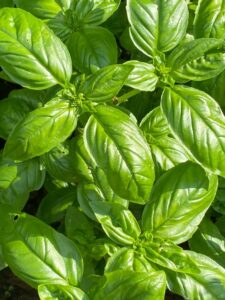Herbs have been an integral part of human culture for thousands of years. They say nature is the world’s medicine cabinet. They are not unfair. Because all kinds of poisons and cures can be found in the gorgeous world of herbs. Ancient herb knowledge can teach us a lot of things today.
We use them for medicinal purposes, as a source of food and flavor, and even as a way to ward off evil spirits. Each culture has its own unique set of beliefs and superstitions surrounding herbs. Many of these beliefs still live today.
Garlic: The Original Wonder of Herbs
Ah, garlic – the beloved kitchen staple and sworn enemy of vampires. But you already know that this pungent herb was also used as medicine in ancient times. Not only did it add flavor to ancient dishes, but it also had some serious healing powers.

In ancient Greece, garlic was one of the sacred herbs. Greeks believe garlic has powerful protective powers. For them, garlic could ward off evil spirits. That’s why they hung it above doorways to keep these spirits from entering the home. Similarly, in ancient Egypt, garlic was also known for its powerful protective properties. Egyptians used it to ward off evil spirits, as well as to treat a variety of medical conditions.
Garlic was the original multitasking wonder herb from treating infections to warding off evil spirits. And who knows, maybe those ancient healers were onto something – after all. If garlic can repel Dracula, it’s gotta be good for something, right?
Holy Basil!
In India, holy basil (a.k.a. tulsi) is a sacred plant. Basil is the number one ancient herb in Hindu religious ceremonies. In India, people believe planting tulsi in one’s home will bring good luck. On the other hand, drinking tulsi tea will protect against illness and promote good health.

People believe basil has immense healing properties. They still use basil in a variety of ways, from medicinal purposes to religious rituals. In Ayurvedic medicine, basil is a remedy for various ailments, including coughs, colds, and digestive issues. Its leaves and essential oil work as a natural insect repellent and a skin tonic. In Hinduism, basil is a symbol of purity. That is the reason it is the first choice in religious ceremonies.
Basil of course has protective properties. So you can plant it around your home and ward off negative energy. Today, basil remains an essential herb in Indian cuisine too. It has a place for a variety of dishes, including chutneys, curries, and teas.
China’s Chrysanthemum
In China, the chrysanthemum is a symbol of longevity and is often associated with good luck and prosperity. It also has medicinal properties. Chrysanthemum can help to treat a variety of ailments, including headaches, fevers, and even snakebites. To make chrysanthemum tea, people steep dried chrysanthemum flowers in hot water. This tea is popular during hot weather because it is believed to have a cooling effect on the body and can alleviate heat-related symptoms.

In Chinese cuisine, people use chrysanthemum petals as a garnish and flavoring in certain dishes, such as salads, soups, and stir-fried dishes. Some skincare products in China also use chrysanthemum extract because of its anti-inflammatory and antioxidant properties.
Baobab Tree: The Superfood You’re Missing Out On
In African cultures, the baobab tree is considered a symbol of life and fertility and is often associated with good luck and prosperity. The baobab tree is also believed to have medicinal properties, and the leaves and bark of the tree are used to treat a variety of medical conditions.

In conclusion, ancient herbs have played an important role in human culture for thousands of years. From garlic and basil to rosemary and chrysanthemums, each culture has its own unique set of beliefs and superstitions surrounding herbs. These beliefs have been passed down from generation to generation and continue to play an important role in our lives today. Whether we use these ancient herbs for cooking, as a source of medicine, or as a way to ward off evil spirits, they are an important part of our cultural heritage and are sure to continue to play a role in our lives for generations to come.
Herbs of Protection
Sage is the ancient herb of purification and protection around the world today. However, its story begins in America. In Native American cultures, burning sage could cleanse a negative energy space and help ward off evil spirits. Today, many people still use sage for this purpose. Sage is also good for smudging ceremonies to purify homes, offices, and even people.
In Europe, rosemary has a long history of being used for protection and purification. In medieval times, rosemary was the perfect choise to ward off evil spirits. Rosemary has the power to keep one safe from harm. Today, rosemary is still popular for these purposes. As well as for cooking and as a natural remedy for a variety of health problems.
References:
- Mount Sinai – The History of Garlic as Medicine
- PubMed Central (PMC) – Extracts from the history and medical properties of garlic
- PubMed – Historical perspective on the use of garlic
- Indian Culture Portal – Tulsi: The Elixir of Life
- PubMed Central (PMC) – The Cultural and Commercial Value of Tulsi (Ocimum tenuiflorum L.)
- Wikipedia – Tulasi in Hinduism
- Wikipedia – Ocimum tenuiflorum
- Wikipedia – Garlic
